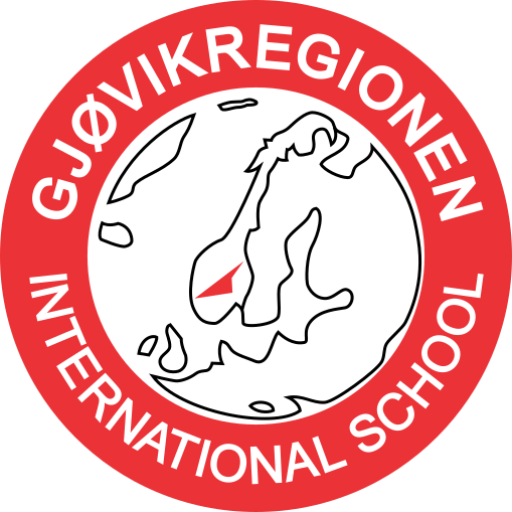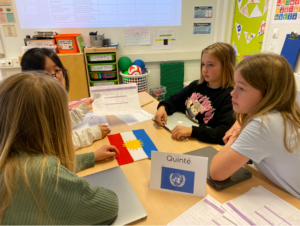GIS community is a diverse group of families representing a wide variety of cultures with their beliefs, customs and traditions, and languages. We recognize the central role of language in constructing one’s identity as well as academic, social and emotional development of every child. We are committed to supporting families in their efforts to maintain their mother tongues.
Mother tongue and self-esteem
Research shows that children who have a strong foundation in their home language are more successful at school than monolinguals and enjoy a greater feeling of self-worth and identity (UNESCO).
Mother tongue and the language of instruction
The language of instruction at GIS is English. For a vast majority of our students, English is a second or third language. Research shows that the development of a child’s mother tongue is directly linked to the development of additional languages. The mastery of skills in the mother tongue is a strong foundation for the development of these skills in another language. Conversely, if a student fails to reach a certain level of mastery of their mother tongue, they will struggle to learn other languages. Therefore, at GIS, we see mother tongues as a springboard for an effective acquisition of the English language, which is crucial to academic success.
Mother tongue and family
Parents speaking their mother tongue with their children strengthen the bonds with the children and allows parents to pass on their values and beliefs. A comparable level of intimacy is hard to achieve in a second or third language.
Mother tongue and relocation to home country
Some families may choose to return to their home country in the future. Strong mother tongue skills will definitely help the child in further studies, including university, or securing a job.
Benefits of being multilingual (according to research by Tracey Tokuhama-Espinosa):
- Multilinguals deal with levels of abstraction earlier than monolinguals.
- Multilinguals have more flexible minds.
- Multilinguals learn how to inhibit previously learned skills sets to be able to learn in new ways.
- Multilinguals use more of their brains than monolinguals.
- Multilinguals are more creative than monolinguals in thirty out of thirty-three studies.
- Multilinguals have transferable cognitive benefits.
- Multilinguals are superior at cultural integration.
- Multilinguals have enhanced intellectual empathy.
At GIS, we help parents strengthen their children’s mother tongue by:
- Educating parents about the importance of mother tongue/sharing with parents the benefits of maintaining one’s mother tongue through the school’s website, school newsletter and information events.
- Helping families make initial contact with families from their home country or who share the same mother tongue.
- Encouraging community members to offer after school clubs with a focus on maintaining and developing mother tongues.
- Providing access to a growing range of resources to support mother tongues.
- Encouraging community members to donate resources in languages other than those taught at school (English, Norwegian and German).
- Encouraging families to speak and read in their mother tongues at home.
- Holding school events that showcase the variety of mother tongues represented in the school community.
- Encouraging parents to find materials in the home language that are related to what the child is learning at school in the units of inquiry. (Talk with your child about the concepts and vocabulary they are learning at school. You will often be able to have a deeper discussion of the issue than your child is able to sustain in English at school.)
- Encouraging parents to organize playdates, language lessons and vacation trips that will allow the child to practice their mother tongue.
Free online resources to support mother tongue:
- Story Online: English
- World Stories: various languages
- International Digital Childrens Library: various languages
- Online Public Library: various languages
- Mamemi Audio Stories: Many audio stories available in a range of languages
Bibliography
O’Connell, Julie. “Supporting Children’s Mother Tongue in Our Schools” Dec. 2012.
Ball, Jessica. “Mother Tongue-Based Bilingual or Multilingual Education in the Early Years.” UNESCO, 2011.
Tokuhama Espinosa, Tracey. “English as a Third Language for Lower Income Children in Holland.” Universidad San Francisco De Quito, 20 June 2013.

